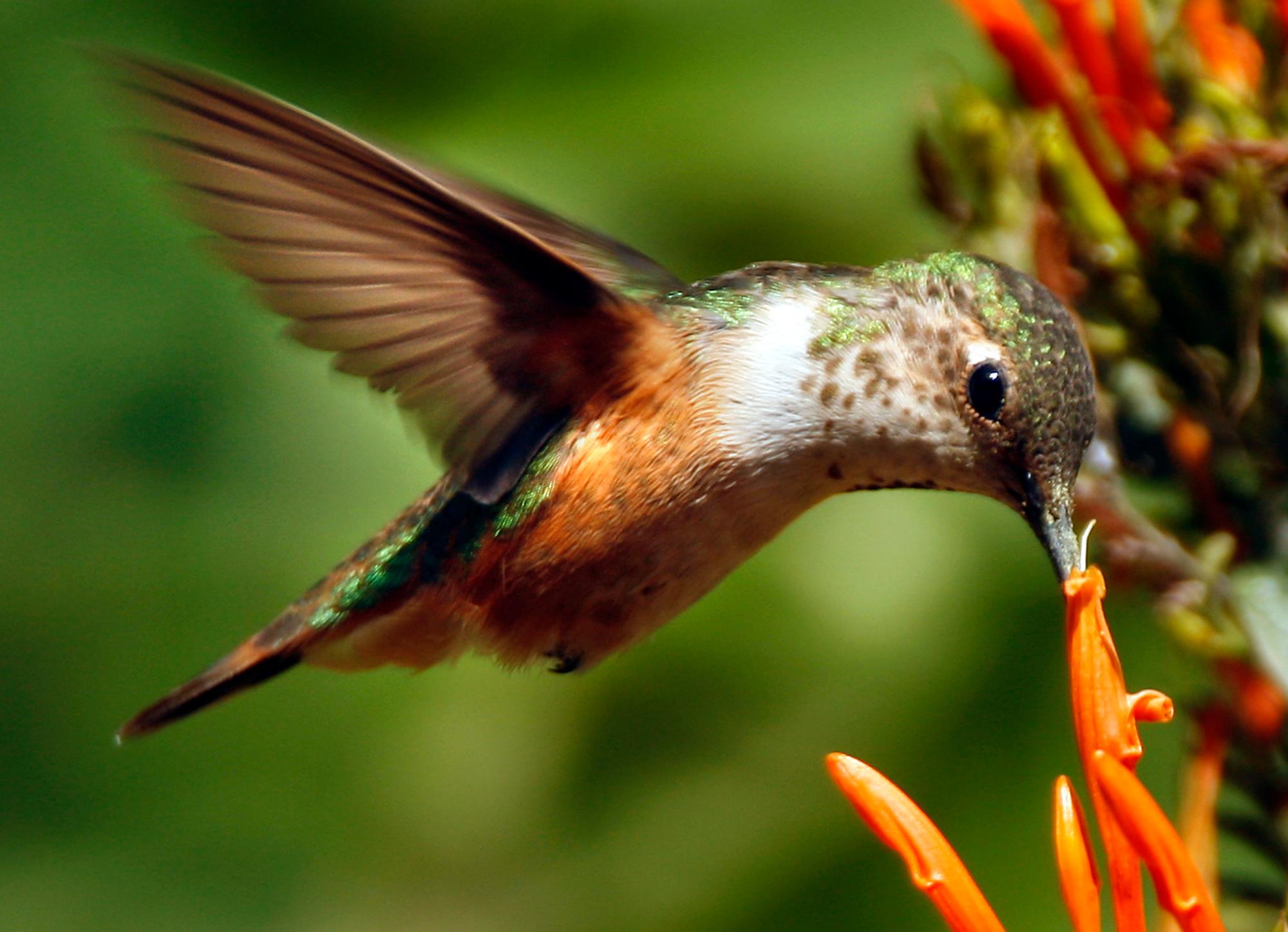Researchers found that wild rufous hummingbirds could remember which flower in a sequence held nectar

A Rufous Hummingbird sips on the nectar from an Orange Justicia plant in California (Mark Boster / Los Angeles Times via Getty Image)
By Theresa Machemer
SMITHSONIANMAG.COM
JULY 10, 2020
New research suggests that wild hummingbirds can keep count as they forage and use their counts to keep track of the sweetest flowers.
The new paper, published on July 8 in the Proceedings of the Royal Society B, found that male rufous hummingbirds can learn which fake flower in a sequence holds a nectar-like syrup. Only one flower in ten held syrup. But even when the researchers moved the location of the artificial flowers and the distances between them, scientists observed the birds returning to the syrup-filled flower.
“They would never lose their car in the car park,” says biologist Susan Healy of the University of St. Andrews to Cathleen O’Grady at Science magazine.
Hummingbirds join a growing club of animals that can understand sequences, which includes rats, guppies and monkeys. Last year, researchers showed that Emory University showed that dogs use a brain region for number processing that’s analogous to the region used by humans, Katherine Wu wrote for Smithsonian last December.
The new research is unique because it focuses on counting ability in the wild, rather than in a lab.
More:
https://www.smithsonianmag.com/smart-news/hummingbirds-learn-count-find-their-favorite-flowers-180975285/


